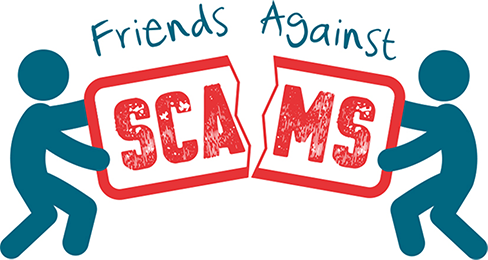Fraud and scams
Frauds and scams are a dishonest scheme where you are tricked out of something, usually money.
Many people are hoodwinked by scams, so don’t be embarrassed about getting help if you think you have been.
Some common types of scams or frauds are:
- Online fraud: fraudsters use the internet to commit their crimes.
- Identity theft and identity fraud: your personal details are stolen then used in a fraud.
- Doorstep fraud: bogus tradesmen, police or officials and door-to-door sales people try to scam you after knocking at your door.
- Letter fraud: an advance-fee scam where you are asked to send money or help transfer money to somebody.
- Phone fraud: fraudsters pretend to be bank employees, police or officials to get your valuable personal details, such as usernames and passwords.
How you may be affected
We’re all different but feeling embarrassed, ashamed, worried, isolated, scared are angry are all perfectly normal.
How can I help protect myself from fraud?
Do not give any personal information (name, address, bank details, email or phone number) to any individual or organisation, until you have proof that they are who they say they are.
Many frauds start with an email. Remember that banks and financial institutions will never email you asking you to confirm your account details or click on a link. Do not trust any emails that do, even if they look genuine. If unsure, you can always check by calling your bank on the phone number on one of its genuine letters or website (always type directly into the address bar), or in the phone book.
Identity fraudsters don’t need much information to clone your identity, so destroy (preferably shred) receipts with your card details on and letters with your name and address.
Make sure your computer has up-to-date anti-virus software and a firewall. Always keep your browser set to the highest security levels to prevent malware and computer crimes.
Sign-up to the Visa Verified scheme or MasterCard’s Secure Code whenever they are offered while shopping online. Here, you register a password with your card company, which increases security on online purchases with participating retailers.
Be extremely suspicious of post, phone calls or emails that offer you business deals out of the blue. If something seems too good to be true, it probably is. Always question it.
Supporting Victims have registered as a friends against scams organisation and include the logo and link to website.
We are here to help you, please call us now. Calls are always treated in confidence.
Calls during office hours
Need help outside of our office hours?
